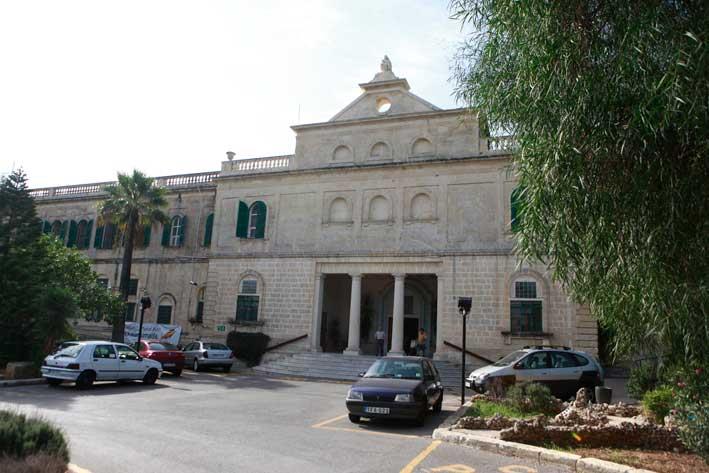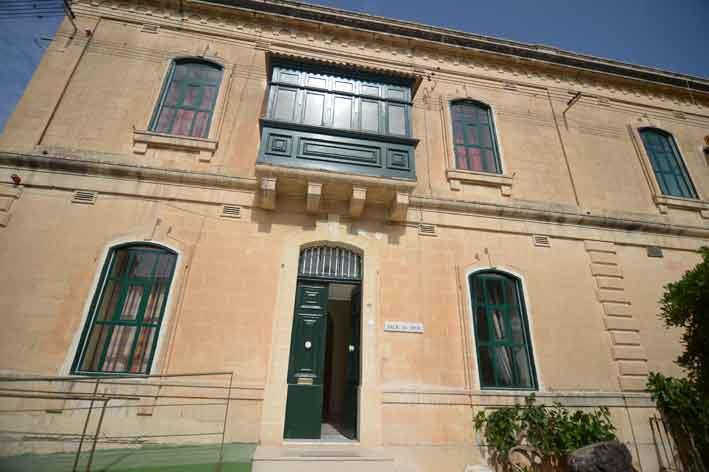Mt Carmel Hospital’s management is stemming the financial losses which had reached in excess of €8 million by the time the Labour Party was elected to office two years ago, the hospital’s CEO Clifton Grima told this newspaper.
“We are now trying to expand the hospital’s services while ensuring liabilities are kept at a bare minimum,” Mr Grima, who was appointed the hospital’s CEO soon after the March 2013 general election, said.
He said that in the two years that he has been in charge of the hospital, the amount of debt had not changed much, but it had been stemmed and was no longer on the rise.
Mr Grima explained that one project which has been made possible but costs kept at a minimum due to the use of the hospital’s own resources, is the new youth residence located outside the hospital and which was inaugurated late last week.

“The hospital did not subcontract the works but used its own resources to reinvigorate this residence, a building which was a shambles,” Mr Grima said.
“Gone are the days where children and youths will be kept in wards with adults thanks to this project,” Mr Grima said, adding that the management did its utmost to create a kind of home atmosphere for young patients.
He said this after The Malta Independent asked him whether children and youths with behavioural challenges will still be kept with mental health patients or adult patients in the same wards. He said that only children and youths with mental health conditions will be kept in this new residence while those with behavioural challenges – who need care - will be kept at Appogg facilities.
“It will be the exception not the rule that young patients will be kept in adult wards. It has to be an extreme case where a patient is really hard to control that we would consider adopting this measure. But we will do our outmost to prevent this,” he assured.

Yesterday, this newsroom toured the €200,000 residential treatment centre, formerly the Young People’s Unit, which is equipped with a games’ room and a number of beds. The facility is also equipped with number of security features to help prevent any pitfalls in a bid to safeguard the health of young patients staying there. The walls are painted in vibrant colours on the soft furnishings, doors and pictures while some of the rooms are connected by a one-way mirror to an observation room so that mental health professionals can closely observe patients during certain activities in an unobtrusive way.
He said that certain security features would go unnoticed by the man in the street but it was vital that such features are thought of beforehand.
Training for staff, he said, is also being enhanced to help staff demonstrate further expertise in the treatment and diagnostics of children between 12 and 18 years of age. Mr Grima added that he was surprised to see that so many members of staff applied for the course and the seats taken up so fast.
“This goes to show that when one motivates his or her staff, they will come forward willingly,” he said.

Admission room made available at hospital
Mr Grima also said that in the past, patients referred to the mental care hospital would have to wait in an ambulance to be seen to before a decision is taken on whether they are admitted to the hospital or now but now an admission room has been made available.
Good percentage of hospital’s patients can easily receive care in the community
Mr Grima pointed out that a good percentage of patients residing at the hospital could easily be receiving care in the community.
“Our intention is to continue to gradually upgrade the hospital while working hand in hand with NGOs to offer care in the community,” he said.
Community care to be enhanced through opening of hostel
In fact, he continued, Richmond Foundation are about to open a hostel for patients who are currently residing at the hospital so that they can live in the community but with the necessary care and support. The hostel - located in Qormi – can host up to 12 patients and those who will be residing there can do so after undergoing a clinical assessment.
He said that it is no easy task to convince certain patients to enter a new setting since some of them have been residing at the hospital for a good number of years.